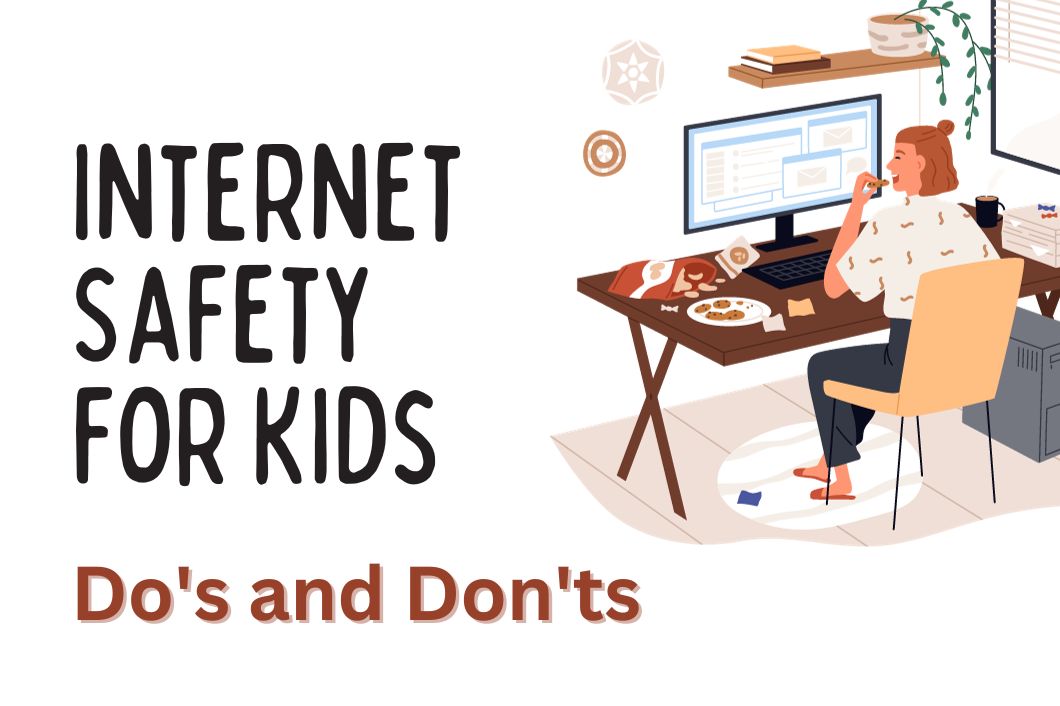Internet Safety for Kids: Do’s and Don’ts

The internet is a vast and exciting place, full of information and opportunities for children to learn and have fun. However, it’s essential to navigate this digital world safely. Here are some do’s and don’ts to ensure a positive and secure online experience.
Dos and don’ts for teaching internet safety to your kids
Do’s
1. Use Strong Passwords
- Do create strong, unique passwords for each online account.
- Do include a mix of letters, numbers, and symbols.
- Do change passwords regularly and never share them with anyone.
2. Be Cautious with Personal Information
- Do be mindful of sharing personal details like your full name, address, school name, or phone number online.
- Do check the privacy settings on social media and gaming platforms to control who can see your information.
3. Use Reliable Websites
- Do use trustworthy websites and sources for research or entertainment.
- Do ask parents or guardians for recommendations on safe websites and apps.
4. Online Etiquette
- Do practice good manners and respect when communicating with others online.
- Do remember that people on the other side of the screen have feelings too.
5. Cyberbullying Awareness
- Do understand what cyberbullying is and report any instances to a trusted adult.
- Do treat others online as you would in person, with kindness and empathy.
6. Critical Thinking
- Do question the information you find online and verify facts with reliable sources.
- Do develop critical thinking skills to distinguish between real and fake news.
Don’ts
1. Don’t Share Personal Information
- Don’t share your personal information, such as your home address, phone number, or school name, with strangers online.
2. Avoid Strangers
- Don’t accept friend requests or communicate with people you don’t know in real life.
- Don’t share pictures with strangers.
3. Don’t Engage in Cyberbullying
- Don’t participate in cyberbullying, and don’t respond to hurtful or offensive comments.
4. Avoid Inappropriate Content
- Don’t visit websites or view content that is not suitable for your age.
- Don’t download files or apps from untrusted sources.
5. Don’t Overshare on Social Media
- Don’t post every detail of your life on social media; oversharing can lead to privacy issues.
- Don’t share embarrassing or inappropriate photos or comments.
Conclusion
The internet can be a fantastic resource for learning and entertainment, but it also comes with risks. By following these do’s and don’ts, children can enjoy the internet safely, protect their privacy, and have positive online interactions. Always remember that open communication with parents or guardians about online experiences is crucial for a safe digital journey.


